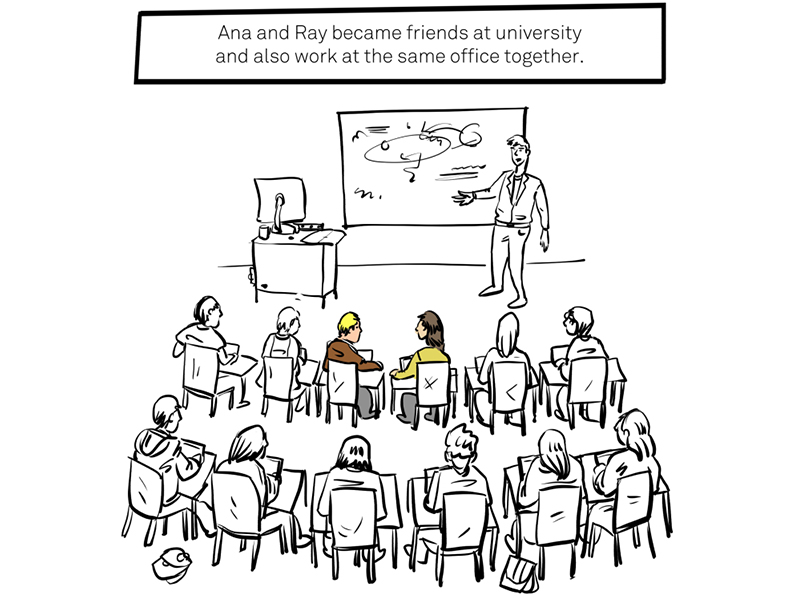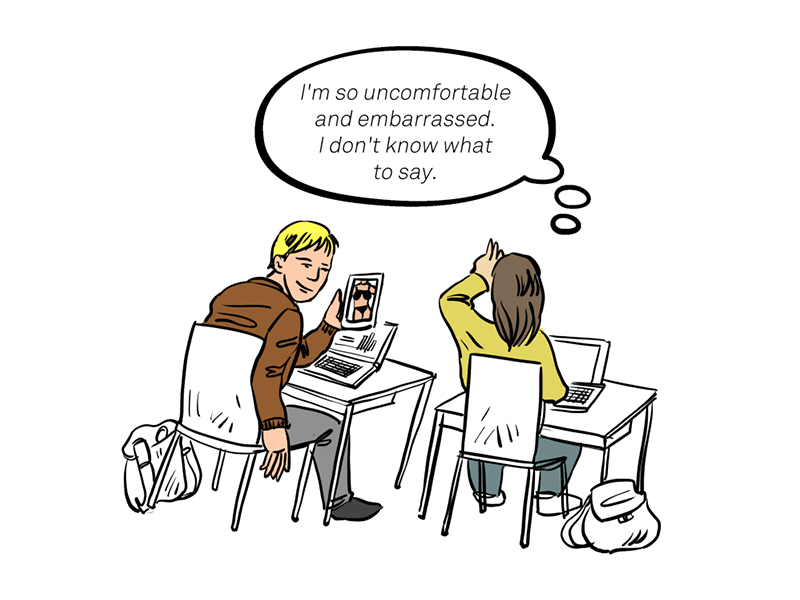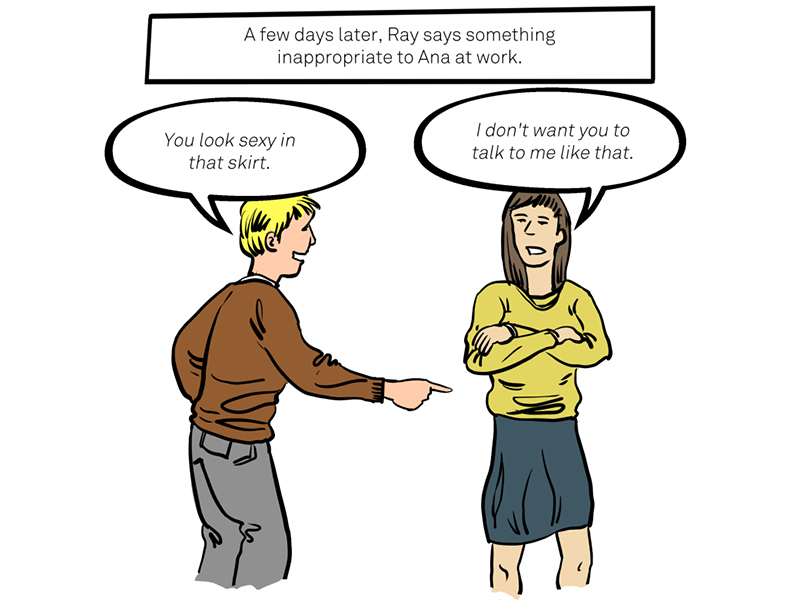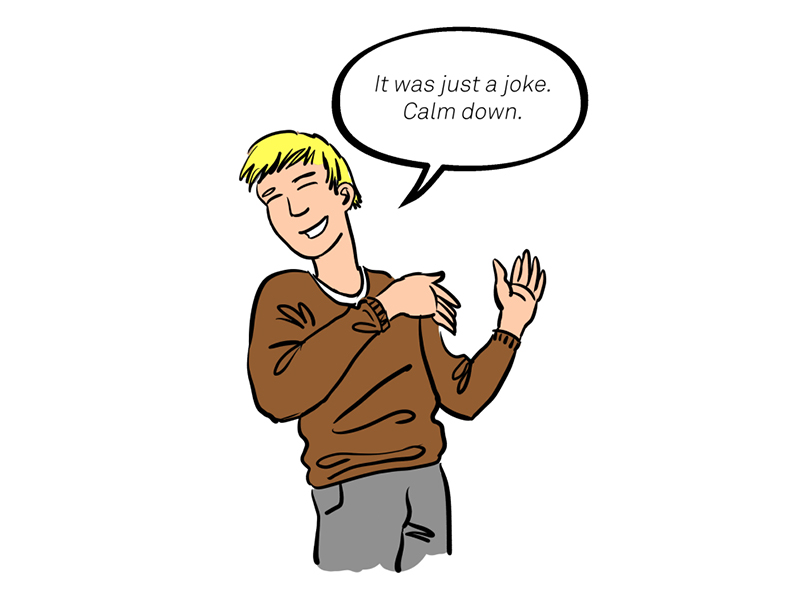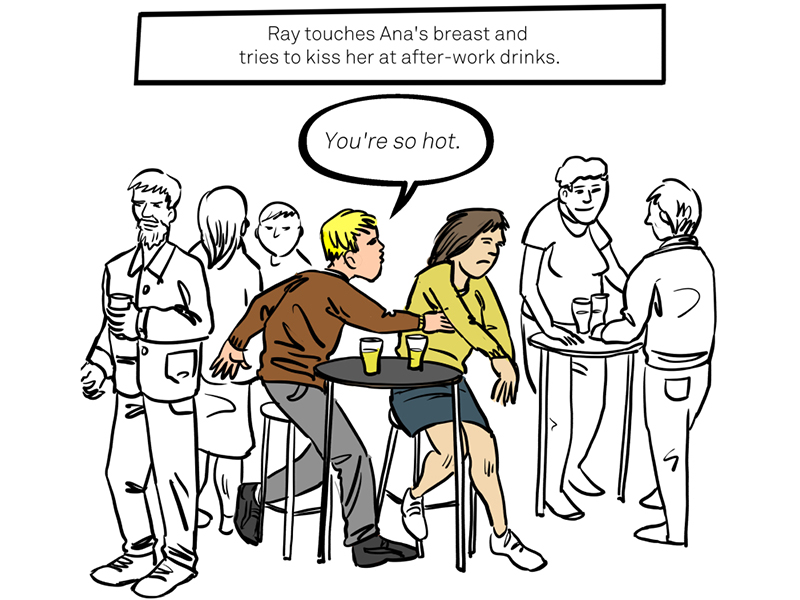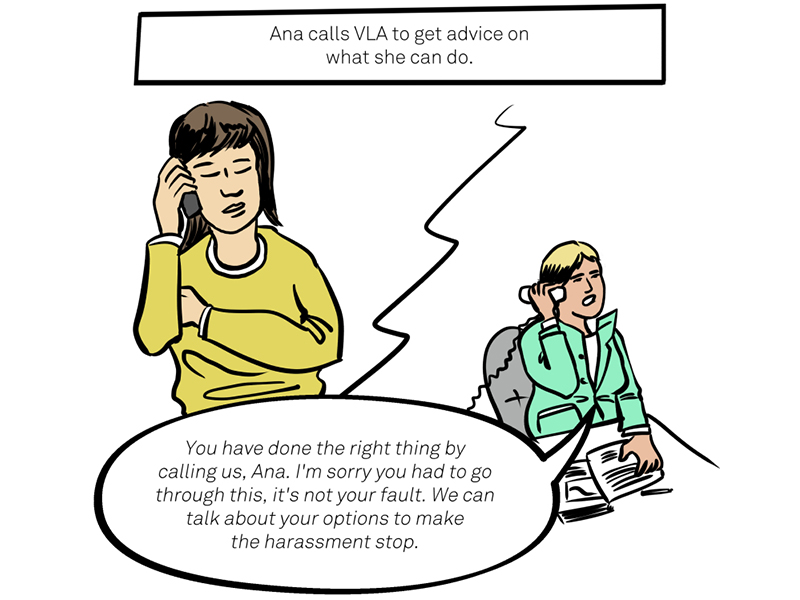Scenario 14: Someone is making you feel uncomfortable at work or at school
‹Previous Scenario English | 中文 | Tiếng Việt | Español Next Scenario›
Learn more about issues like this
- Meld Magazine
- Insider Guides
Learn more about the people and places that can help
Free Legal Help
Lawyers are here to help you. They can give you clear directions about what to do next based on what you want, and they can do things for you like talk to other people, speak in court and draft documents. If you speak to a lawyer, they cannot tell anyone what you have said – including migration authorities, police and family. What you tell them won’t affect your visa, work or education.
Community Legal Centres (CLCs)
Community Legal Centres (CLCs) are independent community organisations that provide free and confidential legal services to the public. They help people who are ineligible for legal aid and cannot afford a private lawyer.
They can provide free legal information, advice and in some cases ongoing assistance to you as an international student.
Victoria Legal Aid (VLA)
If you have a legal problem, you can read free legal information on the VLA website. They can also give you free and confidential legal advice on the phone in your language and sometimes give you ongoing help with your situation.
Other Services
Some services can provide you with support or information. This might include general information about your options. They are a good place to start when you are having trouble and want to find out more about what you can do.
Victorian Equal Opportunity and Human Rights Commission (VEOHRC)
If you feel you have been discriminated against, sexually harassed, victimised or vilified, you can make a complaint to the VEOHRC. They may help you fix your problem by helping you talk to the people causing the problem.
Australian Human Rights Commission (AHRC)
If you feel you have been discriminated against or harassed at work, school, or when purchasing goods and accessing services, you can make a complaint to the AHRC. They will investigate the complaint and may help you fix the problem.
